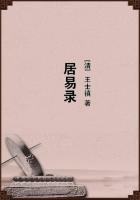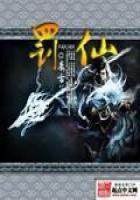"A gentleman who farms a part of his own estate, after paying the expense of cultivation, should gain both the rent of thelandlord and the profit of the farmer.He is apt to denominate his whole gain, profit, and thus confounds rent with profit, atleast in common language.The greater part of our North American and West Indian planters are in this situation.They farm,the greater part of them, their own estates, and accordingly we seldom hear of the rent of a plantation, but frequently of itsprofits.
"Common farmers seldom employ any overseer to direct the general operations of the farm.They generally, too, work agood deal with their own hands, as ploughmen, harrowers, &c.What remains of the crop after paying the rent, therefore,should not only replace to them their stock employed in cultivation, together with its ordinary profits, but pay them thewages which are due to them, both as labourers and overseers.Whatever remains, however, after paying the rent andkeeping up the stock, is called profit.But wages evidently make a part of it.The farmer, by having these wages, mustnecessarily gain them.Wages, therefore, are in this case confounded with profit.
"An independent manufacturer, who has stock enough both to purchase materials, and to maintain himself till he can carryhis work to market, should gain both the wages of a journeyman who works under a master, and the profit which thatmaster makes by the sale of the journeyman's work.His whole gains, however, are commonly called profit, and wages are, inthis case too, confounded with profit.
"A gardener who cultivates his own garden with his own hands, unites in his own person the three different characters oflandlord, farmer, and labourer.His produce, therefore, should pay him the rent of the first, the profit of the second, and thewages of the third.The whole however is commonly considered as the earnings of his labour.Both rent and profit are, inthis case, confounded with wages."And thus the three elements of Price are Wages, Profits, and Rent; and these exist, with few exceptions, in all cases, thoughsometimes two of them may be confounded.
Fixed and Circulating capital.
Capital is further distinguished as Fixed Capital and Circulating Capital.
(Smith, p.120.) " There are two different ways in which the capital of a merchant may be employed so as to yield a profit toits employer.
"First, It may be employed in raising, manufacturing, or purchasing goods, and selling them again with a profit.The capitalemployed in this manner yields no revenue or profit to its employer while it either remains in his possession, or continues inthe same shape.The goods of the merchant yield him no revenue or profit till he sells them for money, and the money yieldshim as little till it is again exchanged for goods.His capital is continually going from him in one shape and returning to himin another, and it is only by means.of such circulation, or successive exchanges, that it can yield him any profit.Suchcapitals therefore may very properly be called Circulating Capitals.
"Secondly, It may be employed in the improvement of land, in the purchase of useful machines, and instruments of trade, orin such-like things as yield a revenue or profit without changing masters, or circulating any further.Such capitals thereforemay very properly be called Fixed Capitals.
"Different occupations require very different proportions between the fixed and circulating capitals employed in them.
"The capital of a merchant, for example, is altogether a circulating capital.He has occasion for no machines or instrumentsof trade, unless his shop or warehouse be considered as such.
"Some part of the capital of every master, artificer, or manufacturer, must be fixed in the instruments of his trade.This parthowever is very small in some and very great in others.A master tailor requires no other instruments of trade but a parcel ofneedles.Those of a master shoemaker are a little, though but a very little more expensive.Those of the weaver rise a gooddeal above those of the shoemaker.The far greater part of the capital of all such master artificers, however, is circulatedeither in the wages of their workmen, or in the price of their materials, and repaid with a profit by the price of the work.
"In other works a much greater fixed capital is required.In a great Iron-work, for example, the furnace for melting the ore,the forge, the slitt-mill, are instruments of trade which cannot be erected without a very great expense.In coal-works andmines of every kind, the machinery necessary, both for drawing out the water and for other purposes, is frequently still moreexpensive.
"That part of the capital of the farmer which is employed in the instruments of agriculture, is a fixed, that which is employedin the wages and maintenance of his labouring servants, is a circulating capital.He makes a profit of the one by keeping it inhis own possession, and of the other by parting with it.The price or value of his labouring cattle is a fixed capital in the samemanner as that of the instruments of husbandry; their maintenance is a circulating capital, in the same manner as that of thelabouring servants.The farmer makes his profit by keeping the labouring cattle, and by parting with their maintenance.Boththe price and the maintenance of the cattle, which are bought in, and fattened, not for labour, but for sale, are a circulatingcapital.The farmer makes his profit by parting with them.A flock of sheep, or a herd of cattle, that in a breeding country isbought in neither for labour nor for sale, but in order to make a profit by their wool, by their milk, and by their increase, is afixed capital.Their profit is made by keeping them.Their maintenance is circulating capital.The profit is made by partingwith it, and it comes back with both its own profit, and the profit upon the whole price of the cattle, in the price of the wool,the milk, and the increase.The whole value of the seed, too, is properly a fixed capital.Though it goes backwards andforwards between the ground and the granary, it never changes masters, and therefore does not properly circulate.Thefarmer makes his profit not by its sale, but by its increase."















